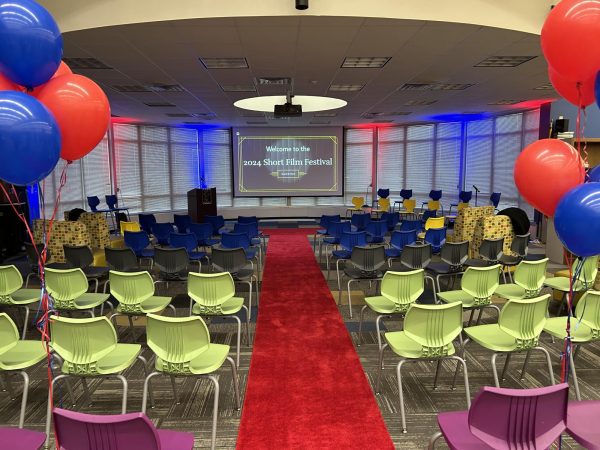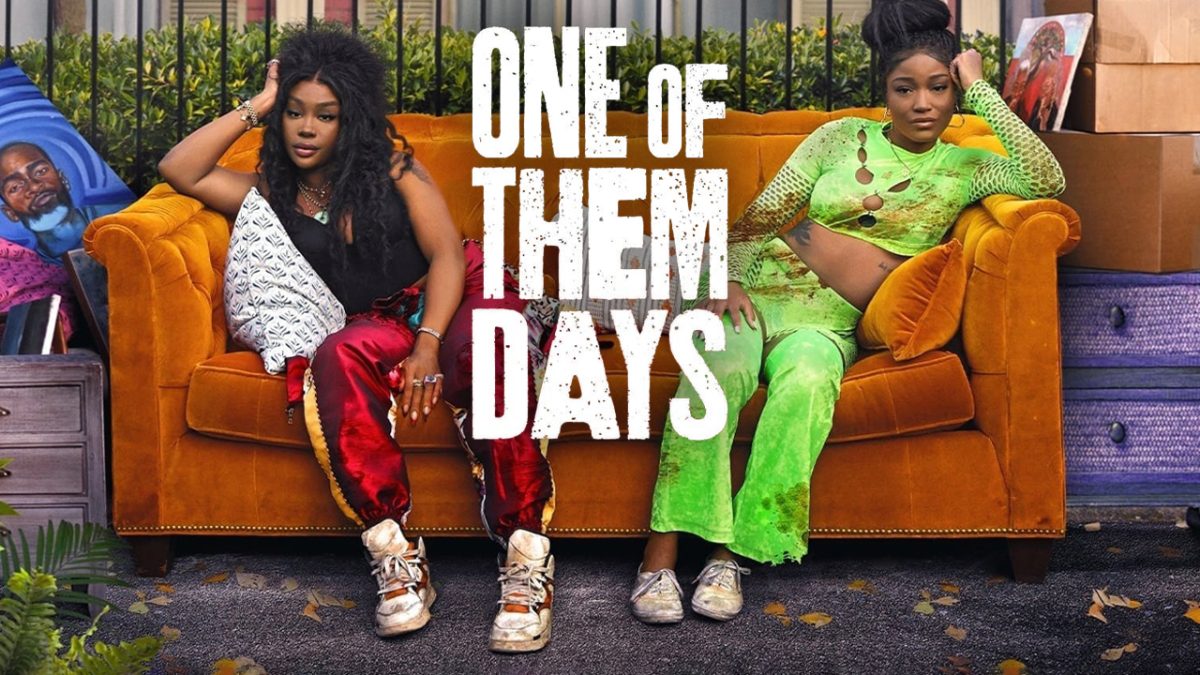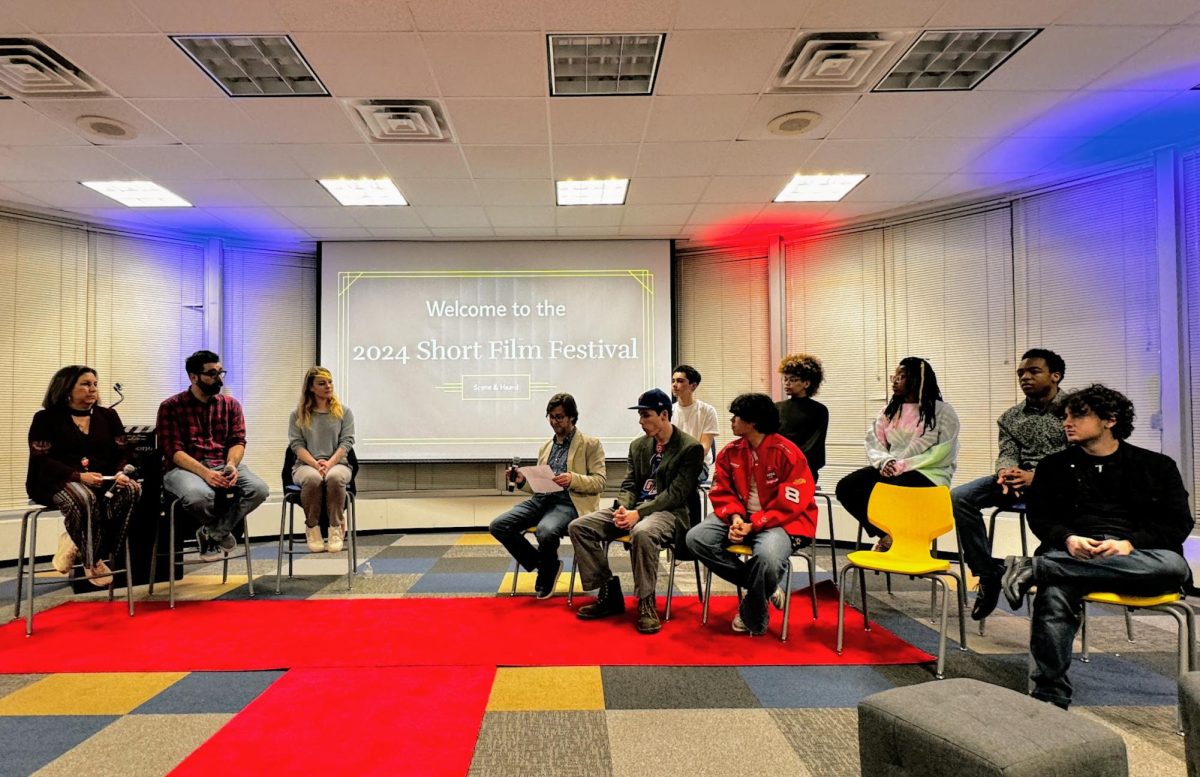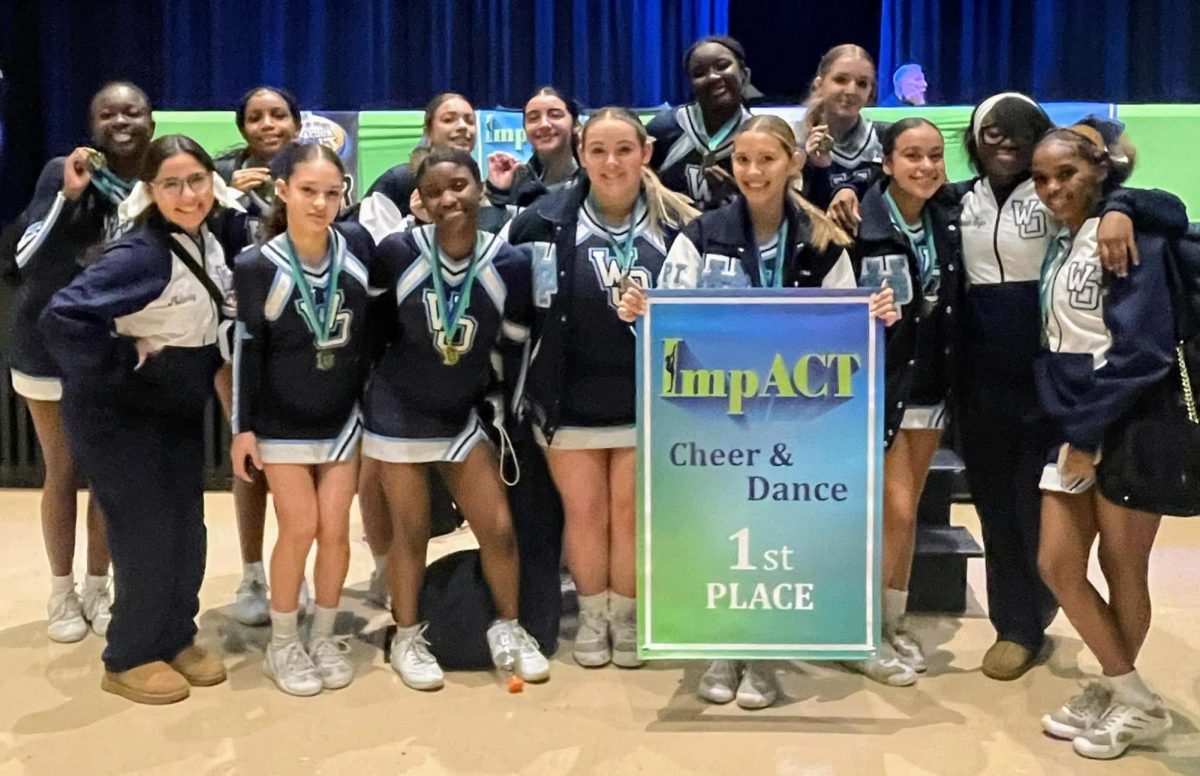Eleven films premiered on Wednesday, May 15, 2024, at the third annual West Orange High School Film Festival. The festival was held in the school’s library-media center, and family, friends, students, and teachers were welcomed to support student filmmakers whose films were being screened for the very first time.
This year the festival’s theme was “Scene and Heard,” and boasted three main categories: animation, documentary, and narrative. Three of the eleven debuted films were also part of the “10-Day Film Challenge,” an assignment in Ms. Wendy Mapes’ Master Scene Study and Advanced Theater classes at the high school. This year the goal of the theme, which is selected each year by students, was “to make sure that their [student filmmakers´] voices are heard,” says Ethan Szymanski. Szymanski is the president of the Screen Writers Society and one of the organizers of this year’s festival. He adds that the theme, like years before, offered students a creative outlet that gave them space to “air out whatever they’re feeling, or just tell a funny story, or get people scared.”
At the beginning of the festival a special video tribute was played for audience members as a thank you to Ms. Tynia Thomassie. Thomassie, the Technology Integration Specialist at WOHS, who founded the Short Film Festival in 2022, resigned as Screenwriter Society advisor at the end of last year but continued to pour her efforts into making the film festival a success. “I’ve only known Ms. Thomassie since like, freshman year, but she has been working nonstop…like the amount of work and time that she put into helping me and helping me make sure that like my films were actually films,” Szymanski smiles, “It was just so remarkable to find someone who had this passion and motivation to help others. And I really just felt like, compelled to kind of almost return the favor…I just wanted her to know that like your work has not gone unnoticed that it’s been so instrumental in just everyone’s lives.”
Thomassie sat on a panel of guest speakers who spoke in a “Q & A” forum after all films had been shown. Along with Thomassie, the panel included producers and directors Ryan Moore and Grace Pula who offered student filmmakers their professional insight.
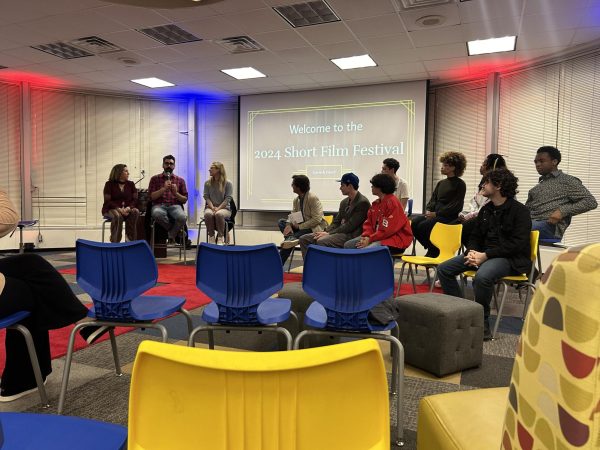
As the president Szymanski is in charge of teaching members of the club new to cinematography the ins and outs of creating a film. From techniques and styles to specific camera shots. Symanski, along with club advisor Mr. Bard Goodrich led students through the creative process helping students grow their seed of an idea into reality, providing them with resources and checkpoints to keep them on track. For some students “starting” was the hardest part. “With [some] club members, there was some difficulty about where to start… just creating a story is hard,” Szymanski said. Although he pulls inspiration from family stories, and people like his mom, Szymanski has learned that sometimes the best ideas come from the strangest places. “I’ll just be watching TV and then all of a sudden it would hit me like oh my god, this shot would be amazing, or this line would be perfect…just relax,” he advises, “because when your mind is relaxed, it is at its best.”
Many artists can agree that there is a remarkable duality of creating. For Symanski, while filmmaking is challenging, it also opens the door to a world of confidence and possibilities that he would never have imagined. Ethan wrote and directed two films this year, one of which he collaborated on with fellow students from the Montclair Film Summer Academy. The program grouped young filmmakers who, at the time, were total strangers and challenged them to write, direct, act in, and produce a short film in just a few days. Symanski’s film, Genre, was the product of this challenge. Scripted in just “a day and a half” and shot and edited in “two days” the film pushed Szymanski to work under a time crunch and forced him to think outside of the box, which ironically ended up being the main premise of the short film, which follows a group of filmmakers struggling to pick just one genre for their new film.
Szymanski was tasked to make a film, but hadn’t been limited to a specific prompt so when his group sat down they thought “Where do we go from that?” Szymanski explains that he used this film really as a way to have “fun” with film, “there’s so many cool genres…[and] we had really expensive equipment…[and] different locations that we could play around with, [so] we kind of created this like little story about just incorporating different genres because we all wanted to try and do something different.”
Through the explorative process “we kind of became like really close friends,” Symanksi says about his group, “I hope the audience can tell that we were having fun.”
While Szymanski describes the excitement that came with working on Genre he doesn’t deny it was without its challenges, but acknowledges that “there is always a solution to a problem, it may not be a solution you like, but it is a solution nonetheless.” Szymanski expresses “I think what I’ve learned not even just from genre, but just filmmaking is that thinking outside the box means also having to listen to what other people may be telling you or just understanding that like not everything will work out.” He explains that sometimes the solution requires you to make sacrifices which may not puzzle-piece into your initial vision but soon “help create something new, something better,” and something that “in time you will respect.”
Although Szymanski uses his filmmaking to build skills and discover new techniques, the epitome of any art form is self-expression. For his second film, Jewel, which follows a young artist’s journey to recover her spark after vandals destroy her work, he embraced another side of himself. Growing up Symanski, who identifies as half South Indian, recalls stories from his mother and grandparents describing their struggle to “persevere through extreme ignorance and prejudice.”
For Szymanski Jewel was a way to tell their story and demonstrate how his family didn’t let their experiences “dictate them,” and instead used them “as a stepping stone to become someone even better than anybody could have ever imagined.” As the theme of this year’s festival suggests, filmmaking offers students a creative outlet to be “Scene and Heard”.
Symanski’s films were just two out of the 11 total films premiered, most of which had elements focussing on the young adult experience yet each offered a unique perspective on the world. Offseason, directed by Sean Harrington and James Der told an emotional tale of growing older, a coming-of-age narrative that tugged on the heartstrings of seniors at high school ready to enter the world of adulthood. Others like Remission Animated by Basil Lyons, Hell Year directed by Ayanna Jones, and Procrastination directed by Kai Gonzalez individually explored feelings of sadness, overwhelm, and anxiety, emotions high schoolers are all too familiar with.
Unlike traditional film festivals, WOHS’ annual event isn’t set up as a contest. No winner is selected nor are any awards given out. For Szymanski, the diversity of films and creative minds is what makes the event so special. “We have such an incredible, diverse community,” he remarks, “[everyone] has their own story to tell, and trying to say, ‘Oh, this film is better’…doesn’t do anyone justice.” Instead, he hopes, like Thomassie intended when she first founded the festival, that the event can continue to be a hub for creative students to learn from themselves and each other while remaining free of competition. Symanski describes that his close work with each of the student films makes it impossible for him to pick a favorite and finds pride in the fact that the festival is “a space for people to share their voice, their feelings, [and] their story.”
As Szymanski mentioned, the Film Festival celebrates not only the finished product of students’ hard work but also the smaller details, challenges, and triumphs that go into creating a film. After submitting a total of four films to the film festival over the past three years Szymanski explains that filmmaking built his confidence in taking risks, and allowing himself the freedom to think creatively and with the capacity to honor open-mindedness. Along with learning collaboration skills, and personal “intrinsic motivations,” Szymanski says that filmmaking has taught him “that… there’s more than one way of expressing yourself.” Even outside of the film industry, he says “these skills” are crucial, “you need to know how to collaborate with others. How to, like, socialize and have that emotional intelligence to empathize with others.”
Szymanski praises the community of filmmakers at WOHS for their dedication and hard work this past year and treasures the community being built. He plans to pursue filmmaking as a career in the future, but for now, he’s just excited for next year. “I’m so excited for people to see the 2025 [festival]…, rest assured…once we’ve entered the next school year, you will know that there will be a bigger and better change to it.”
All films from this year’s festivals can be enjoyed for free on the online program. You can also explore previous year’s premiered films in the festival archive on their website.
